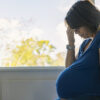
The National Survey of Family Growth has just released new results for the years 2006-08 and the findings about teens’ attitudes toward marriage and childbearing are bracing. Reaching a new high, the NSFG found that the percentage of teenage males who agree or strongly agree with the statement, “It is OK for an unmarried female to have a child,” has risen from 50 percent to 64 percent since 2002. The percentage of teenage girls agreeing with the statement was even higher, nearly 71 percent.
While attitudes and actions are not perfectly congruent, especially in the area of decisions about sex and marriage, the increase in acceptance of unmarried childbearing tracks with the national data released earlier this year that found a record number – nearly 41 percent – of U.S. births in 2008 were out-of-wedlock. Much of the media reported that non-marital birth story as a positive one because the number of teen births was down. But marital status is the key indicator of the present and future well-being of families, as well as of the cyclical prospects for reducing out-of-wedlock sex, pregnancy, abortions and births in the future.
Marriage is the single most powerful preventive and antidote to child poverty. If today’s poor women who have a child out-of-wedlock were to marry the actual father of that child, nearly two thirds of them would be lifted out of poverty immediately. The benefits of marriage accrue across a wide range of social outcomes for children, and include reductions in alcohol abuse, the rate of adultery, and running away from home; and increases in child literacy, high school graduation rates, and future marital success.
The surge in out-of-wedlock births is occurring not among teenagers, who have just 23 percent of all non-marital births, but among 20-somethings. The attitudes of current teenagers toward such births are trending in a negative direction, but their actions as adults will matter more.
The NSFG data continue to underscore the factors that are most protective in deterring teen sexual activity and permissive attitudes toward unwed childbearing: religious beliefs and residing in a married-parent household. For example, 57 percent of all unmarried teens have not had sex; for teens in intact families, however, the figure is 62.2 percent, for those in stepfamilies it is 56 percent, and those in single-parent families, 47.5 percent.
Put more positively, teens in intact families are nearly 44 percent more likely to remain abstinent through their teenage years than teens being raised by a single parent.

























